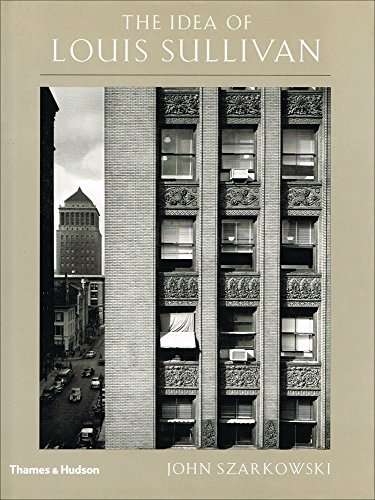Published by Thames & Hudson, 2005, hardcover, illustrated, 162 pages, 31.8 cms x 24 cms, condition: new.
Louis Sullivan (1856-1924) is one of America's most famous and influential architects -- an American Master in the words of John Szarkowski. In 1956, before Szarkowski gained fame as the Director of Photography at the Museum of Modern Art, he was the author/photographer of a book on Sullivan. Published by the University of Minnesota Press. The Idea of Louis Sullivan has long been out-of-print.Bulfinch Press has decided to bring this classic book back in print. The photographs have been declared by no less an authority than Frank Lloyd Wright, a protege of Sullivan's, as the best ever taken of Sullivan's work. This edition, with a new, elegant design and duotone reproductions using today's print technology, promises to be a beautiful photography book and a much welcomed architectural book about this pivotal Chicago architect.The text is composed of excerpts from contemporary sources, mostly from Louis Sullivan's own distinguished and charming commentaries on architecture and modern society, and a foreword by Szarkowski, as well as a preface to the new edition. Terence Riley will contribute an introduction on Sullivan's significance to modern architecture from today's perspective.
In the early 1950s, having just received a Guggenheim Fellowship, John Szarkowski set out to photograph the major buildings of Louis Sullivan. The photographs - declared by Frank Lloyd Wright, a protege of Sullivan's, as "the best photographs of a Sullivan building that I have ever seen" - are augmented by a profile of Sullivan and excerpts from Sullivan's writings and contemporary sources in an attempt to capture the mind and spirit of the man, and the time and place.
The author, John Szarkowski is director emeritus of the Department of Photography, The Museum of Modern Art, New York. He is the author of many works on photography.
Terence Riley is Chief Curator of the Department of Architecture and Design at The Museum of Modern Art, New York. Riley wrote an introduction for Visions of Wright.

